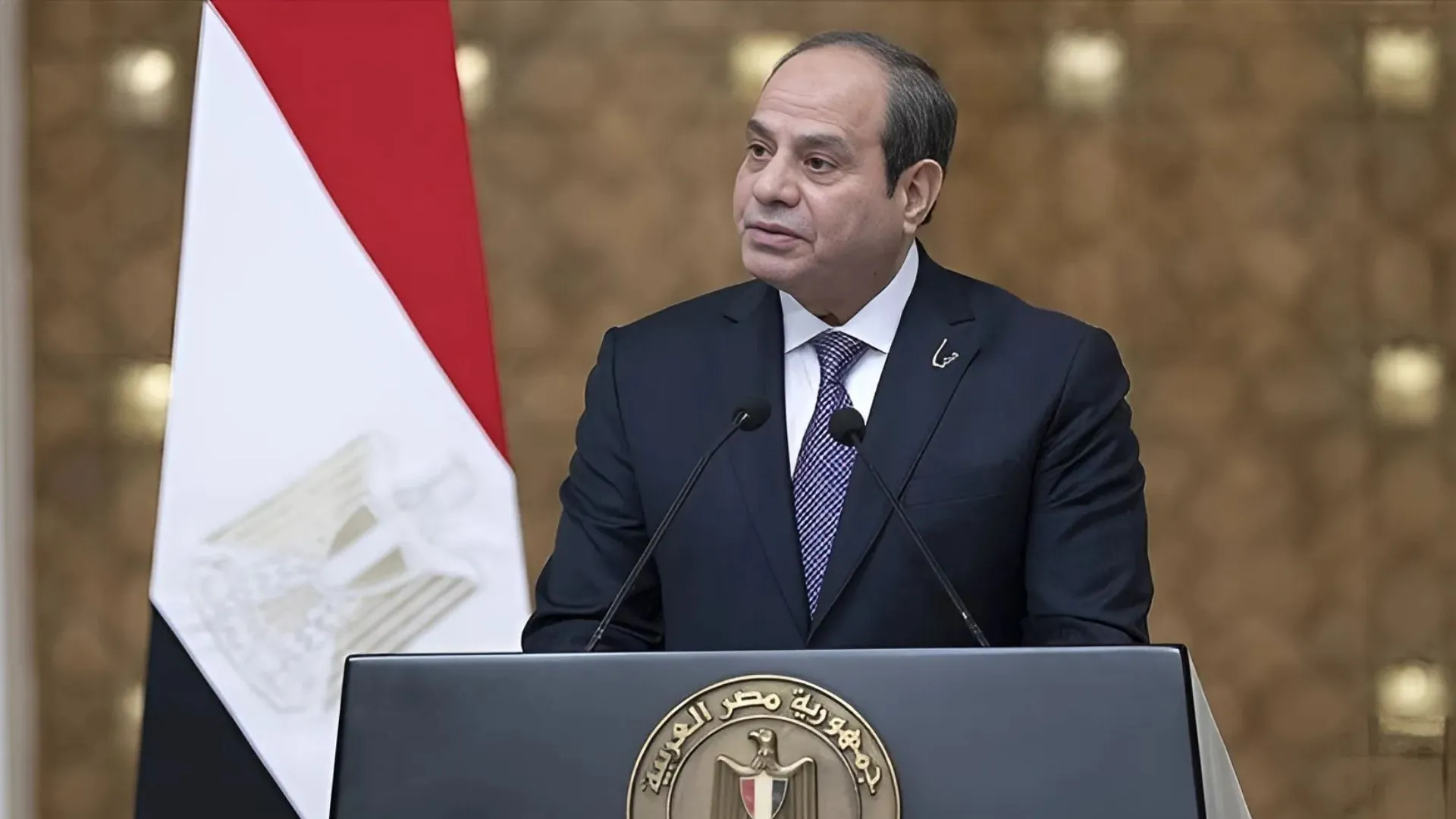Egyptian President Abdel Fattah al-Sisi announced on Sunday a proposed two-day truce and a limited hostage exchange in Gaza. This initiative aims to pave the way for a “complete ceasefire” following over a year of intense conflict between Israel and Hamas.
The proposal, as outlined by President Sisi during a news conference in Cairo, includes the exchange of four Israeli hostages currently held in Gaza for Palestinian prisoners in Israeli detention. Sisi emphasized that this temporary agreement would be followed by further negotiations within ten days. However, he did not disclose whether the plan had been formally presented to either Israel or Hamas, raising questions about its potential implementation.
Egypt has been playing a crucial role in mediating indirect talks between Israel, Hamas, and various stakeholders, including Qatar and the United States. These efforts, however, have so far yielded little success. Sisi’s announcement comes at a time when Israel continues to intensify its military operations in the Palestinian territories while also confronting Hezbollah in Lebanon and launching air strikes against Iran.
Rising Tensions With Iran
The situation escalated further over the weekend, as Israeli forces conducted air strikes against Iranian targets in response to ballistic missile attacks that originated from Iran. The strikes, which were the second retaliation against Iran’s aggression, prompted international calls for restraint and a convening of the UN Security Council to address the issue. Iran’s leaders downplayed the significance of the strikes, asserting that they had only caused limited damage and that Iran did not desire war, though they promised an “appropriate response.”
Israeli Prime Minister Benjamin Netanyahu, marking the anniversary of the Hamas attack on October 7 last year, stated that the operation against Iran was “precise and powerful,” claiming it achieved all its objectives. These developments are intertwined with ongoing pressures on Netanyahu to secure the release of Israeli hostages held in Gaza.
Demands For Hostage Negotiations
In a separate but related context, Israeli officials, including spy chief David Barnea, were reported to be in Qatar on Sunday to discuss resuming negotiations for a hostage deal. Families of the hostages have been vocal in their calls for the government to reach an agreement, especially following the killing of Hamas leader Yahya Sinwar earlier this month. Analysts and officials believe Sinwar was a significant barrier to finalizing a deal.
Israeli Defense Minister Yoav Gallant echoed the need for “painful concessions” in negotiations, asserting that solely relying on military actions would not fulfill Israel’s objectives in the ongoing conflict. Out of the 251 hostages captured by Palestinian militants during the initial October 7 assault, 97 remain in Gaza, with the Israeli military reporting that 34 of these individuals are presumed dead.
Continued Violence Amid Negotiations
While diplomatic efforts are underway, violence persists in the region. A tragic incident occurred when a truck plowed into a crowd at a bus stop in central Israel, resulting in one fatality and injuring over two dozen people. Authorities have yet to determine whether this was a deliberate attack or a tragic accident.
In the backdrop of these discussions, Israel continues its military actions in Gaza and Lebanon. Airstrikes have targeted various locations, including neighborhoods in Beirut and southern cities. The health ministry in Lebanon reported at least eight fatalities from these strikes, with the ongoing war having claimed at least 1,615 lives in Lebanon since September 23, according to AFP’s tally based on official data.
Human Cost Of The Conflict
The conflict, which escalated dramatically following Hamas’s attack on October 7, 2023, has led to significant casualties on both sides. Official figures indicate that 1,206 people, primarily civilians, lost their lives in Israel due to the attack. In Gaza, the death toll has tragically exceeded 42,924, with the majority being civilians, according to data from the health ministry in the Hamas-controlled territory. The toll reflects the profound humanitarian crisis unfolding in the region.
The war has drawn in Iran-backed groups from across the Middle East, notably Hezbollah in Lebanon, as well as militias operating in Iraq, Syria, and Yemen. The situation remains fluid, with continued efforts for negotiation and dialogue amid the ongoing violence and loss of life.
MUST READ | Georgia’s President Denounces Electoral Outcome, Calls For Public Protests Against Government




